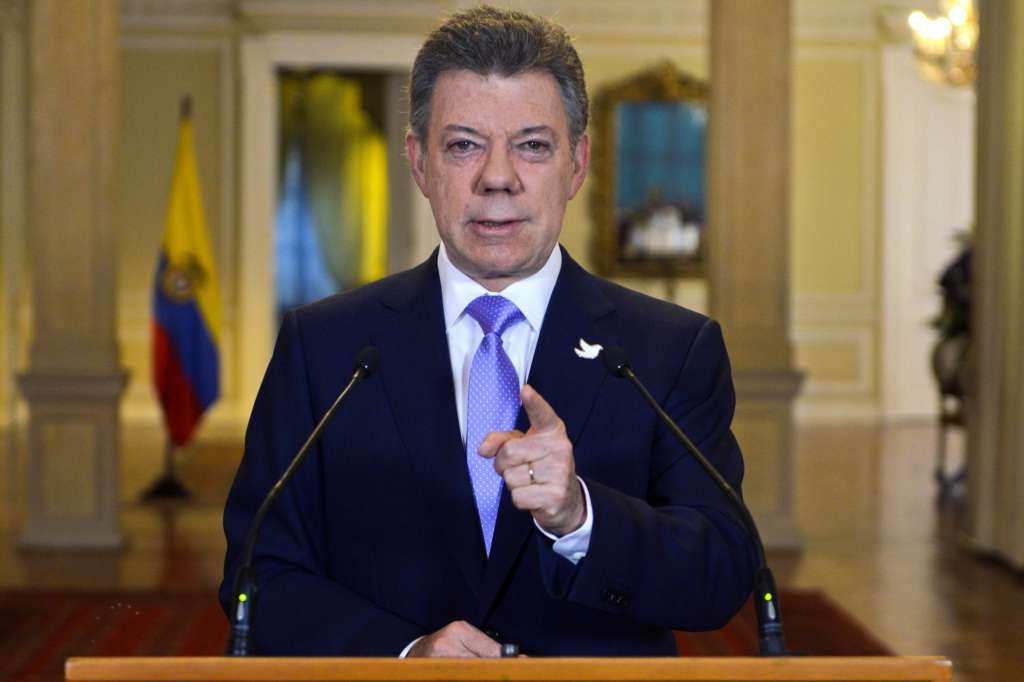Colombia’s President Juan Manuel Santos on Thursday said security forces had killed the second-in-command of the Gulf Clan, the country’s foremost drug gang.
Writing on Twitter, Santos added authorities would elaborate on the circumstances of the killing of Roberto Vargas Gutierrez, alias “Gavilan,” who had been sought for a 500 million pesos ($170,000) reward.
According to Agence France Presse, the Gulf Clan, which accounts for some 70 percent of Colombia’s cocaine production, was born from the remnants of an outlawed right-wing paramilitary group which fought rebels during the country’s half-century civil conflict.
The paramilitaries were officially disbanded in 2006, but authorities say their members are still making money from drugs and violence.
Its leader, Dairo Antonio Usuga, alias Otoniel, is the most wanted man in the country. The US has placed a $5 million bounty on him.
Colombia is the world’s leading coca leaf grower and also the biggest source of cocaine, producing 866 tons in 2016, according to the UN.
Meanwhile, Colombia’s FARC former guerrilla group re-launches itself Friday as the Common Alternative Revolutionary Force, sealing its transformation into a leftist political party following its disarmament after a half-century civil conflict.
The name controversially retains the same acronym and the revolutionary spirit of the communist guerrilla group, which fought a bloody 52-year campaign against the state before signing a peace deal last year.
The party will hold a formal launch ceremony on Friday on Bolivar Square, near the presidential palace in the heart of the political district in the capital.
Demobilized and renamed, it now faces a struggle for political acceptance in a country scarred by decades of attacks and kidnappings.
